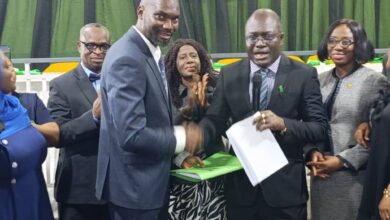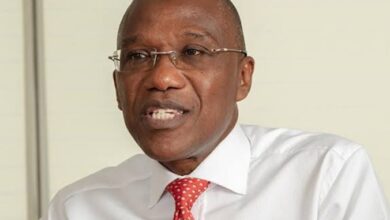
ECOWAS Court Dismisses Suit Seeking Yoruba Self Determination
The ECOWAS Court of Justice has dismissed a suit filed by four individuals seeking self-determination for the Yoruba people of Nigeria.
The four are: Risqat Badmus, Ademola Faleti, Yemisi Fadahunsi-Ogunlana and Adigun Makanjuola, all members of the Coalition of Yoruba Interest Group (CYIG).
In a judgment, a three-member panel of the court held that the four individuals lacked the necessary capacity to sue for themselves and on behalf of the Yoruba nation.
In the lead judgment, Justice Dupe Atoki held that as individuals, the applicants failed to prove their ability to act as bearers of the right to self-determination ascribed to Yoruba people.
The judge relied on the definition of the African Commission of the concept of a people as a group of persons “bound together by their historical, traditional, racial, ethnic, cultural, linguistic, religious, ideological, geographical, economic identities and affinities”.
Click To Read Also: Court Turns Down CBN Governor Request Orders Accelerated Hearing
She held that the four applicants did not qualify to be the bearers or holders of such rights and declared that they did not have the capacity to sue the Respondent State for themselves.
Justice Atoki also held that the applicants failed to exhibit their capacity to represent the Yoruba for whom the action was instituted.
The judge averred that in cases of the right to self-determination, “a representative action is the appropriate and indeed the most practicable option in seeking relief for violation of this right”.
She added that for a representative action initiated by an individual to succeed, the presentation of an authority to act from the alleged victim(s) is required.
According to her, no such evidence of authority given by the Yoruba nation was provided by the applicants.
Also Read: Abuse of Rights: Businessmen Institute Charges Against EFCC & Police
The judge subsequently declared the application inadmissible.
The applicants urged the court to determine if the new legislation, laws, directives, and decrees were still operational within their (applicants’) territories since the expiration of the proclamation.
They equally urged the court to determine the possibility of self-determination for the territories in Yoruba land.
Alternatively, they urged the court to order the Nigerian government to organise a referendum, giving the opportunity to the applicants’ land to exit the respondent’s territory.
You May Like To Read: Illegal Detention: ECOWAS Court Orders Nigeria To Pay German N54m
In its counter-arguments, the Federal Republic of Nigeria contended that the applicants sought to threaten the sovereignty and autonomy of the country and were invoking “the jurisdiction of this Honourable Court to determine the validity of the Constitution of the Federal Republic of Nigeria, 1999”.
The government argued that Nigeria is operating a federal system, observing the rule of law, adding that the applicants did not have the authority to determine the efficacy of the Constitution of the Federal Republic of Nigeria.
The respondent also argued that the case has nothing to do with human rights violation but an attempt to upturn the country’s Constitution, which is not within the jurisdiction of the court.







